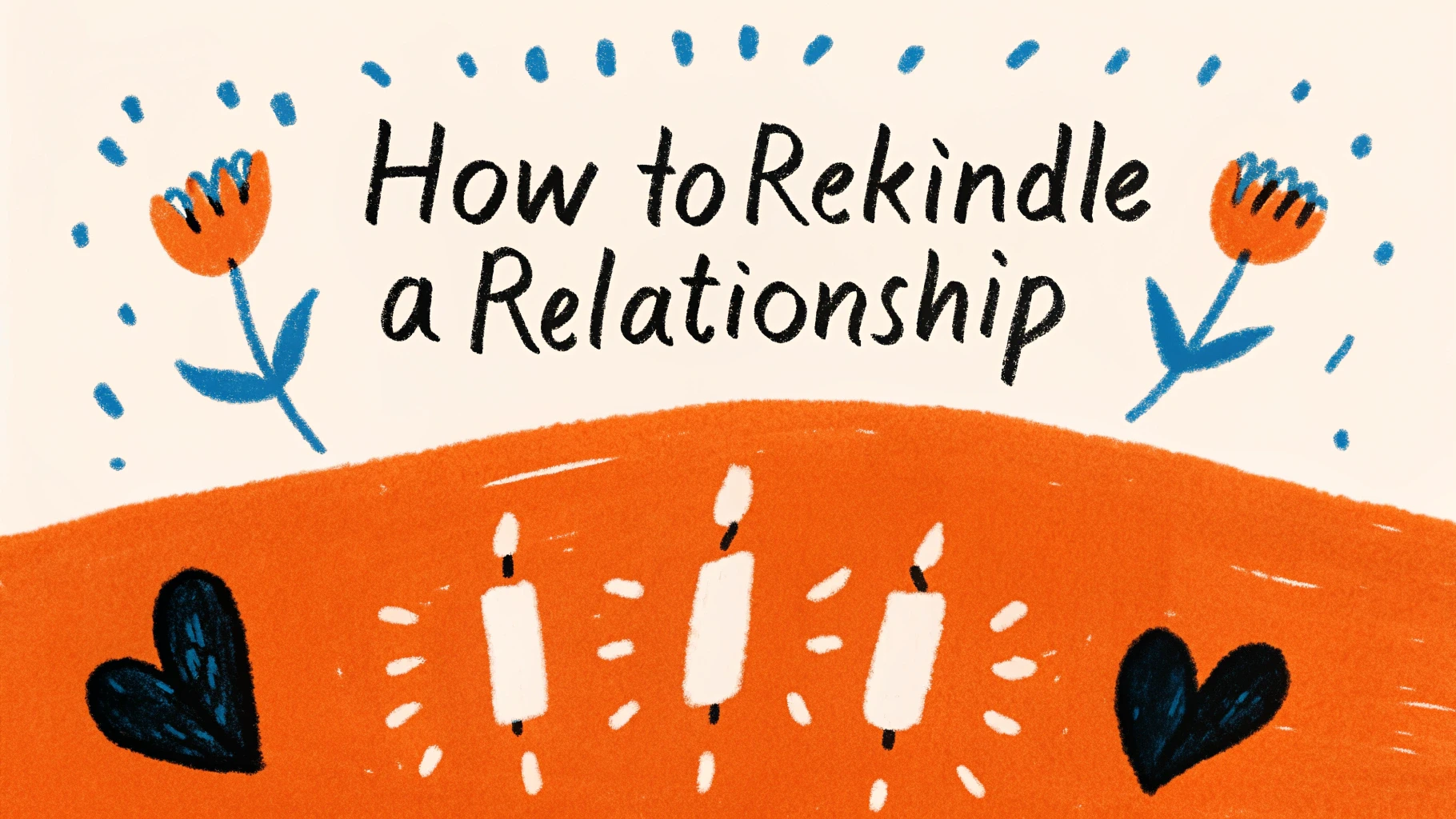
How to Rekindle a Relationship? (2026 Guide)
Feeling like you're drifting apart even though you talk every day? Learn how to rekindle a relationship with small, daily connection rituals that actually work.
you're here because something feels off.
maybe you're long-distance and you text throughout the day about random stuff, facetime once a week (if you both remember), and somehow still feel like you're drifting apart.
or maybe you live together. you see each other every day. you talk about who's picking up dinner, what time the meeting is, did you remember to call your mom. you're communicating, technically. but you're not actually connecting.
here's the thing: the problem isn't that you don't care. it's that "staying connected" feels like this huge, undefined task you're both supposed to do but nobody actually knows how.
you keep waiting for the right moment to have a deep conversation. you keep thinking "this weekend we'll reconnect." and then the weekend comes and you're both tired and you just watch netflix and scroll your phones in the same room.
here's what actually works: intentional connection daily. not hours of deep conversation you'll never have. not waiting for the perfect weekend getaway you'll never book. five minutes of genuine attention toward each other, every single day.
not because you're supposed to. because you actually want to remember why you're together in the first place.

why relationships lose their spark (and why that's completely normal)
in the beginning, everything about your partner feels exciting. your brain is literally flooded with dopamine and adrenaline. but as time goes on and you settle into routine, that intense buzz naturally cools down.
research shows our brains adapt to familiarity. you shift from passionate infatuation to a calmer, companionate love built on trust and history. which is nice, but also kind of less exciting if you're not careful.
meanwhile, everyday life takes over:
▸ you get busy with careers and bills and chores▸ maybe you have kids who consume all your energy▸ you stop planning dates because you'll "do it later"▸ conversations revolve around logistics instead of feelings▸ you become roommates who occasionally kiss
here's the uncomfortable stat: only about 8% of couples in long-term relationships still feel that "falling in love" thrill years later.
psychologist dr. stan tatkin says when we stop being curious about our partner and run on autopilot, it has a dulling effect that makes daily life less exciting and causes us to take each other for granted.
predictability sets in. comfort turns into complacency. you know their order at every restaurant. you can predict what they'll say before they say it. you're not surprised by them anymore.
losing the spark doesn't mean losing the love. it means the embers need stoking. it means it's time to be intentional instead of assuming connection will just happen.
think of it less like "our relationship is broken" and more like "we need to actually prioritize this thing we both care about."
because here's the truth: you're not drifting apart because you're incompatible. you're drifting apart because neither of you is steering.

what actually works to rekindle a relationship
forget grand gestures that look good on instagram but don't change anything.
forget expensive weekend getaways you'll plan but never actually book.
forget waiting until you "have time" for deep conversations (you never will).
what works is small, consistent effort. like, annoyingly small. embarrassingly simple.
here's how.
★ how to spend quality time together (when you're both busy as hell)
spending quality time together sounds obvious until you realize you haven't been truly present with each other in months.
you've been in the same room, sure. but scrolling separate phones while the tv plays in the background isn't connection. that's just proximity.
longitudinal studies suggest couples who spend consistent quality time together see about 37% increase in relationship satisfaction. consistent being the key word.
not "we had a great date night three months ago." daily. weekly. consistently.

the actual strategy:
① schedule it like you'd schedule an important work meeting
mark a weekly date night or connection time on your calendar. guard that time from other interruptions. treat it as non-negotiable.
because if it's not on the calendar, it won't happen. you know this. you've proven this to yourself repeatedly.
② be fully present (which is harder than it sounds)
when you do have this time together:
▸ put away the phones (actually away, not just face-down on the table)▸ turn off the tv▸ focus on each other▸ don't think about work▸ don't mentally plan tomorrow's tasks
the key is that it's intentional, distraction-free time to interact.
neuroscience shows that when you engage in focused one-on-one time (no devices, no half-hearted attention), your brain releases oxytocin and dopamine. the same feel-good bonding chemicals as when you first fell in love.
③ quality over quantity (seriously)
you don't need three-hour dates. you need frequency.
start with:
15 minutes of quality conversation each day
a 30-minute walk together a few times a week
end each day with a short check-in chat
apps like candle make this stupidly easy. you get a daily prompt (could be a question, a mini-game, a photo challenge). answer whenever works for you, see your partner's response, keep your streak going. takes 5 minutes max.
does it solve deep relationship problems? no. does it mean you're actually connecting daily instead of going weeks where you only talk about who's picking up groceries? yes.
the structure makes it happen instead of being something you mean to do but forget.
★ how to improve communication (when talking feels like pulling teeth)
open, honest communication is the foundation of intimacy. if the spark has dimmed, communication has probably either waned completely or fallen into negative patterns.
dr. john gottman's research identified four toxic communication habits that predict breakups:
✗ criticism → attacking your partner's character instead of addressing specific behavior✗ contempt → showing disrespect through sarcasm, mockery, or eye-rolling✗ defensiveness → making excuses and denying responsibility instead of listening✗ stonewalling → shutting down emotionally and refusing to engage
if any of those sound familiar, it's time to course-correct.

what to do instead:
① practice active listening (not just waiting to talk)
actually hear your partner's perspective without:
interrupting them mid-sentence
planning your rebuttal while they're talking
dismissing their feelings as overreactions
making it about you
use reflective statements: "what i'm hearing is that you felt ___ when ___."
simply feeling heard works wonders for intimacy. people don't need you to fix everything. they need you to actually listen.
② use "i" statements instead of blame
✗ bad: "you never pay attention to me"
✓ good: "i feel disconnected when we don't spend time talking"
this prevents defensiveness and keeps conversations safe. nobody can argue with how you feel. they can argue with accusations.
③ express appreciation daily (even for small stuff)
point out things you love or appreciate about your partner:
thank them for doing the dishes
tell them you love their laugh
notice when they make an effort
psychologists note that we naturally adapt and stop noticing the good (hedonic adaptation). we have to actively refocus on gratitude.
a sincere compliment or thank-you not only makes your partner feel valued, it also gradually trains both of your brains to remember why you value each other.

④ have regular check-ins (not just crisis talks)
consider a brief weekly "relationship meeting" to talk about how you're each feeling and address minor issues before they fester.
try a 20-minute check-in ritual:
one partner gets 10 minutes to speak freely about what's going well and any worries
the other listens without interrupting
then switch
no problem-solving in the moment, just listening and acknowledging
this provides a safe space for both people to share and feel heard. it prevents resentments from building up silently until they explode.
communication isn't just about talking. it's about connecting. when your partner genuinely feels that you listen and care (and vice versa), you create the understanding that reignites emotional intimacy.
★ how to add excitement and novelty (without booking a trip to paris)
one big reason excitement fades: everything feels the same day in and day out.
early on, you did new and fun things together. later, routines took over. same dinner spots. same weekend activities. same conversations.
neurological research confirms that novel experiences trigger dopamine release in the brain. the same pleasure chemical involved in new love attraction. by experiencing something new together, you associate that rush of positive feeling with your partner.
novelty doesn't mean booking a trip to paris (though if you can, go for it).
even small changes can disrupt the monotony:
taking an unfamiliar route on your evening walk
cooking a new cuisine together you've never tried
learning a little skill as a pair
visiting a random local landmark you've driven past a hundred times

specific ideas that actually work:
① plan a surprise (monthly)
little surprises rekindle excitement. maybe one of you plans a "mystery date" once a month where the other doesn't know the agenda.
could be:
checking out a new hiking trail
visiting a quirky local museum
setting up a candlelit dinner at home with a twist
drive-in movie theater
mini golf at that place you've never been to
② try something new together (emphasis on together)
pick an activity neither of you has done before:
take a sushi-making class
try tandem biking
start a two-person book club
play a new cooperative video game
learn to make cocktails
pottery class
escape room
shared first-time experiences create fresh memories and give you new things to talk about. you're both beginners together, which creates a different dynamic than your usual roles.

③ break one small routine this week
do you always just watch tv after dinner? maybe instead play a board game one night, or sit outside and chat over dessert.
do you always do errands separately? try going grocery shopping together and turn it into a mini date.
any small change adds novelty. your brain notices the difference even if it seems insignificant.
④ revamp date nights (if you've let them slide)
rather than the same-old dinner at the same restaurant, brainstorm new date ideas together:
explore a nearby town you've never visited
go bowling if you never have
visit a farmer's market
take a cooking class
go to a comedy show
try that weird restaurant with the unusual cuisine
candle's date ideas feature curates creative local outings and refreshes weekly. browsing those together could spark inspiration for things you'd never think of on your own.
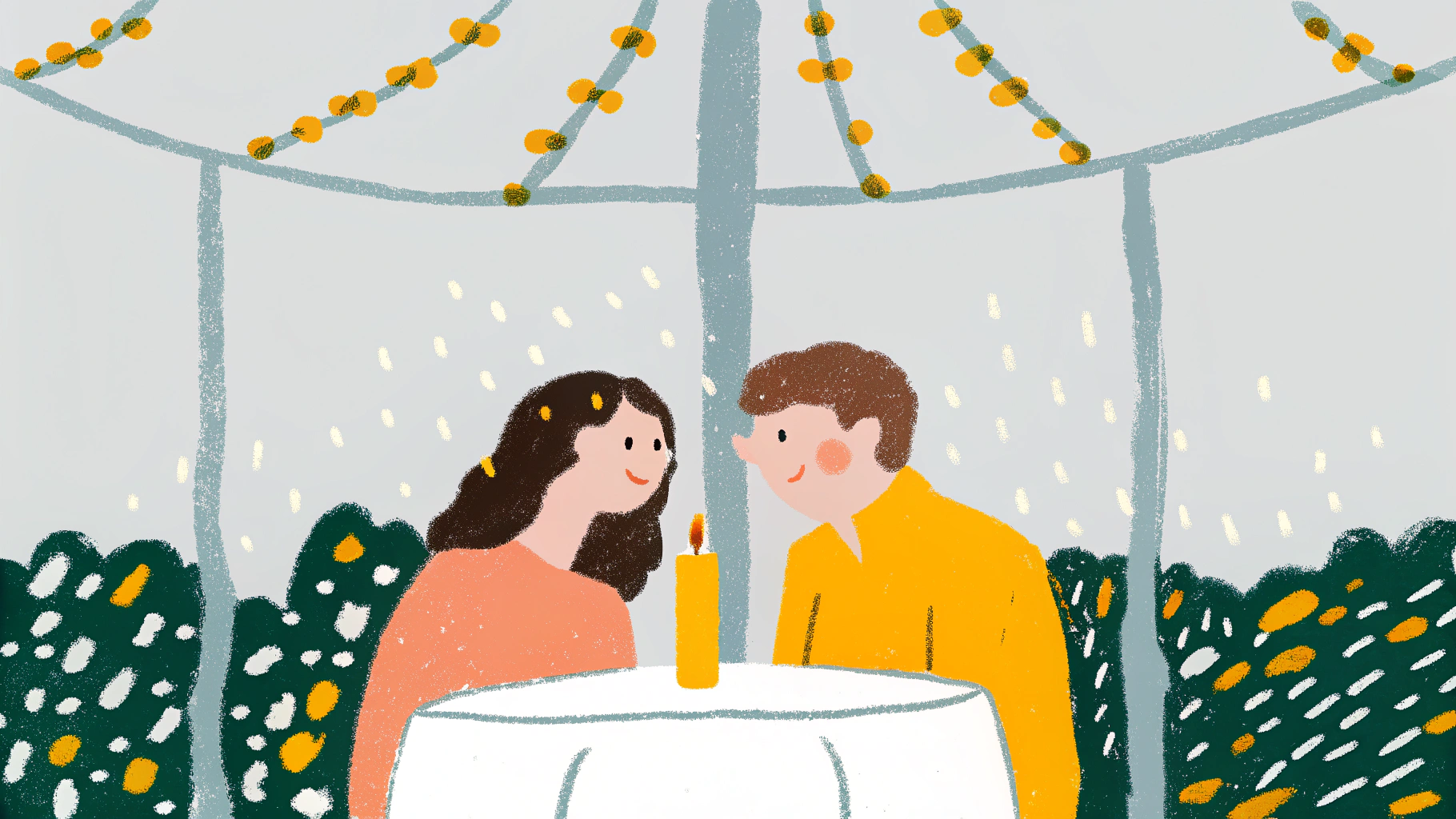
the idea is to infuse adventure back into your partnership. when things feel fresh and unpredictable (in a good way), you'll start to see each other in a new light again.
curiosity is sexy. make it a habit to keep exploring together, whether it's places, hobbies, foods, or knowledge.
★ why physical touch matters (way more than you think)
physical touch is a powerful connector. in the beginning of a relationship, couples can't keep their hands off each other.
over time, especially if things have been bumpy, non-essential touch (hugs, cuddling, holding hands) may have dwindled to almost nothing.
you might only touch during sex, or not even then. maybe you sleep on opposite sides of the bed. maybe you don't even hug goodbye anymore.
making an effort to bring back gentle, non-sexual physical affection can jump-start the emotional spark.
even brief physical contact like a 6-second hug triggers a surge of oxytocin (the "bonding hormone") and lowers cortisol (the stress hormone). when you make these moments of affection a regular habit, you essentially rewire your brain and body for connection.

the actual tactics:
① the 6-second hug, twice a day (minimum)
commit to hugging each other for at least six seconds every morning when you wake up and again when you reunite after work or before bed.
six seconds is longer than most perfunctory hugs. it feels awkward at first if you're not used to it. that's the point. it forces you to actually be present for a moment.

② casual touches throughout the day
hold hands when you're walking together or sitting on the couch. give a light shoulder rub when passing behind their chair. let your knees or feet touch when sitting nearby.
these little touches are constant signals of "i'm here, i love you."
③ cuddle time (no phones allowed)
spend a few minutes cuddling on the couch or in bed without distractions. you don't have to talk. skin-to-skin contact (even just a hand on their arm or laying your head on their chest) is soothing and bonding.
set a timer if you need to. 10 minutes of phone-free cuddling. it sounds clinical but it works.

④ be playful (like you used to be)
remember flirtatious physical play from early days?
a surprise kiss when they're not expecting it
a gentle tickle
dancing in the kitchen to a random song
a playful butt smack as you walk by
bring that back in small doses.
research has found that couples who occasionally send flirty or intimate texts report higher sexual satisfaction than those who never do. so a midday "can't wait to kiss you later" text or a winking emoji might spark some butterflies.

for long-distance couples especially:
candle's thumb kiss feature hits different. it's this synchronized tap thing that triggers a gentle vibration on each phone.
sounds silly until you're 800 miles apart and that little buzz reminds you someone's thinking of you right now. it's emotional but low effort, which is exactly what long-distance needs.
reconnecting physically should be gentle and pressure-free. the goal is to rebuild intimacy and comfort, not immediately jump into passionate sex if you're not both feeling ready.
but fostering more non-sexual affection often creates a natural pathway to improving your sexual connection as well. physical intimacy and emotional intimacy are deeply intertwined. working on one often helps the other.
★ how to create meaningful memories (not just exist together)
when a relationship feels drab, look back at the bright spots.
spend an evening strolling down memory lane together:
break out old photos
watch that video from your early dating days
reminisce about your best moments
"remember that spontaneous road trip to the beach and how we got lost and ended up laughing all night?"
reflecting on shared happy memories can rekindle affection by reminding you both of why you fell in love in the first place. those positive moments are the foundation of your bond.

memory exercise:
each of you share a favorite memory of a time when you felt really close or in love with the other person. talk about what made it so special.
you might discover things you didn't know:
"i was so nervous on our first date i rehearsed what to say"
"i kept the ticket stub from that concert because that night meant so much to me"
"i knew i loved you when you showed up at 2am with soup when i was sick"
this kind of reminiscing fosters gratitude and closeness.
after you've soaked in nostalgia, make plans to create new memories together. every relationship needs ongoing injections of fun and positivity to thrive.
it could be:
something big like planning a weekend getaway
something small like trying a new cafe for brunch this saturday
as long as it's something you'll both enjoy and remember.
maybe even start a new tradition:
yearly anniversary photo recreations
a journal where you document one fun thing you did each month
monthly "adventure day" where you try something new
the goal is to continue writing your "story" together with fresh chapters, rather than living in the same page on repeat.
shared memories are like glue. the more good ones you have, the more resilient your relationship becomes.

★ how to be teammates (not competitors or strangers)
rekindling love isn't just about doing things for each other. it's also about how you see each other.
as relationships mature, couples sometimes start assuming they know everything about their partner. we become dismissive or impatient without realizing it.
a crucial deeper strategy is to actively practice empathy: really try to see things from your partner's perspective and validate their feelings.

what this looks like in practice:
when your partner is upset or you're having a conflict, pause and ask yourself: "how might they be feeling right now? what might be driving their behavior?"
even if you don't agree with their point, you can acknowledge their emotions.
for example: "i understand you've been stressed at work and i see why you've been distant. i'm here for you."
these responses show that you get them, which is deeply bonding.
remind yourselves that you're a team, not adversaries. it's easy to slide into a me-vs-you mindset during tough times, but rekindling love requires a team mentality: tackling problems together rather than blaming each other.
when you adopt an understanding stance, it defuses tension. if things get heated, take a breather and come back when calmer.
over time, consistently responding with empathy and patience rebuilds trust.
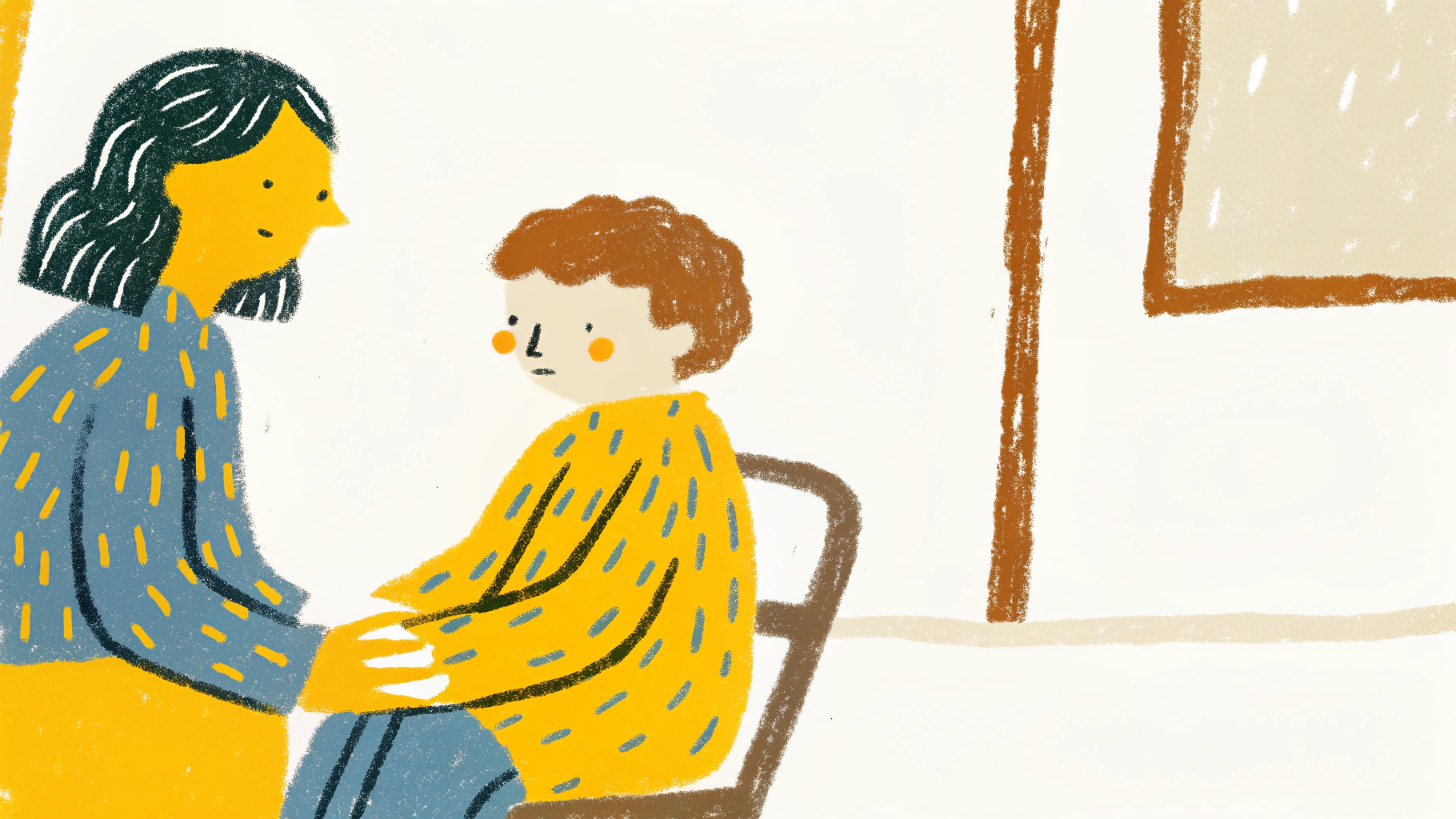
stay curious about them:
ask each other meaningful questions. keep being curious. even if you think you know your partner inside out, people grow and change.
ask about:
their current hopes
their worries
if there's something they'd like more of in life
what they're thinking about lately
their dreams for the next five years
losing curiosity dulls a relationship, whereas showing genuine interest in your partner's inner world ignites connection.

if it feels hard to come up with questions, tools like candle present fun or deep questions couples can ask each other. using those tools can make it like a game to rediscover each other.
recognize each other's love languages:
not everyone rekindles connection the same way. some feel most loved through:
words of affirmation
acts of service
receiving gifts
quality time
physical touch
take time to learn what matters most to your partner (you can even do the five love languages quiz together).
if your partner's love language is quality time, then your effort to plan date nights will mean the world to them.
if another's is words of affirmation, a heartfelt letter or compliment can light them up more than any expensive gift.
aligning your efforts with how your partner receives love will supercharge the rekindling process. it ensures the things you're doing actually land and make your partner feel adored.
how to rekindle a relationship after trust issues or major distance
sometimes the spark fades not just from routine, but because of deeper hurts or prolonged disconnection.
maybe there was a breach of trust (like infidelity or a significant lie). or perhaps years of poor communication have built up walls of resentment. or you've been physically apart for so long that you feel like strangers.
rekindling a relationship that feels deeply broken is possible, but it requires extra patience and work from both partners.
★ address past hurts openly (even though it's uncomfortable)
you can't rekindle closeness if there are unspoken grievances or pain simmering underneath.
as uncomfortable as it is, gently bring the issues into the open. acknowledge the specific hurt your partner is carrying, and vice versa.
"i know my actions last year really hurt you. i regret it and want us to heal."
it's hard to heal what isn't acknowledged. sweeping things under the rug and hoping the feelings just disappear will only keep a barrier between you.

in cases of major betrayal or trauma, it's often wise to do this with a professional counselor mediating. some conversations are too loaded to have productively on your own.
★ offer and seek forgiveness (gradually)
if apologies are owed, make them sincere, specific, and without excuses.
but know that forgiveness is a process, not a one-time event. the person who was hurt may need time to see consistent change before they can truly forgive.
forgiving doesn't mean:
forgetting what happened
saying the hurt was okay
pretending it never happened
forgiving means:
you're choosing to let go of resentment so it doesn't control you both forever
you're willing to give the relationship another chance
you're freeing yourselves to rebuild anew
frame it as freeing yourselves to rebuild, rather than "letting someone off the hook."
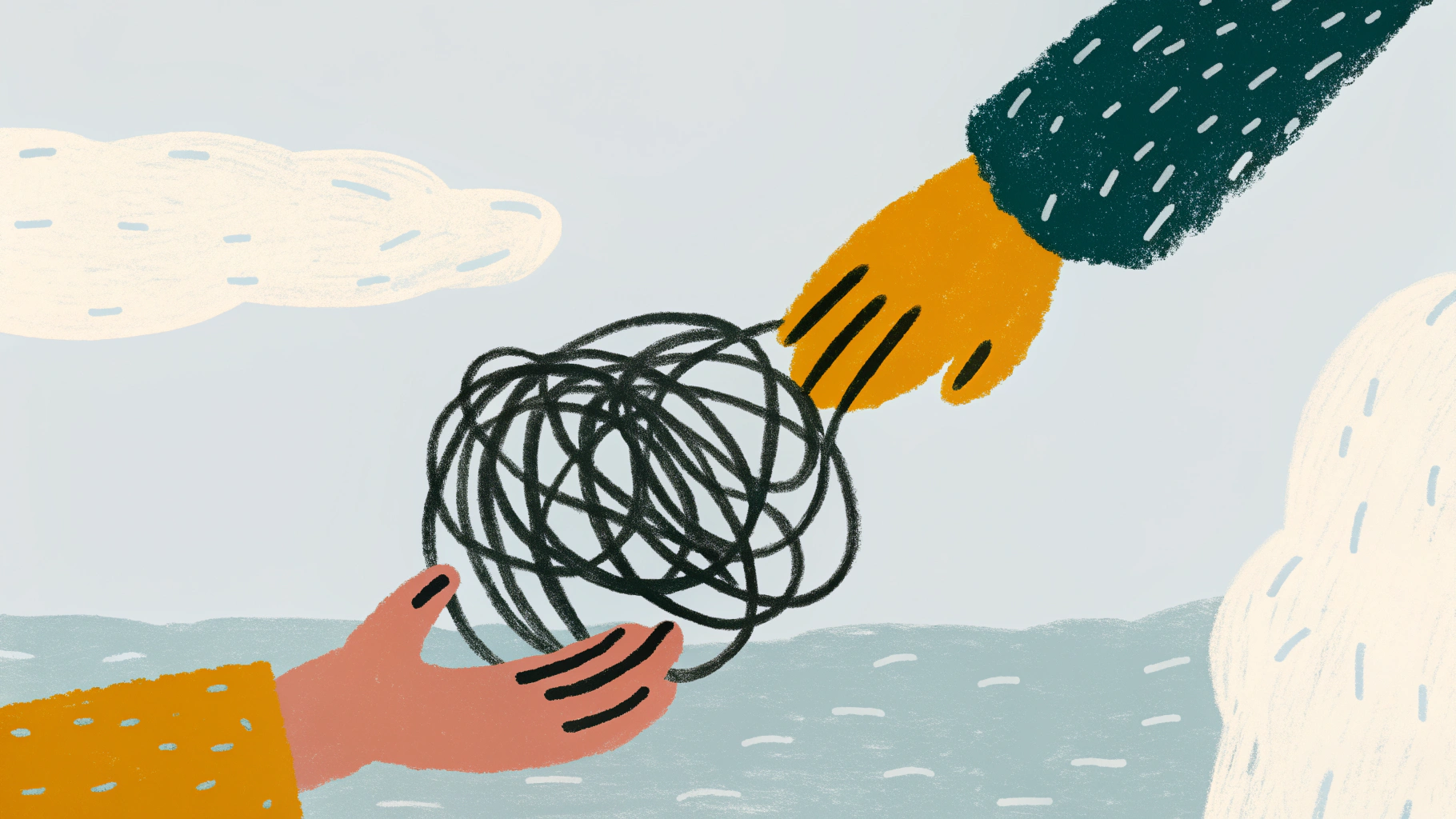
go at a pace that feels right. forgiveness might come in stages over months or years.
★ rebuild trust through actions (not just words)
when trust has been broken, words alone won't fix it. you'll need to demonstrate trustworthiness through your actions, consistently, over time.
if you're the one who broke trust:
be an open book now. proactively show that you have nothing to hide.
this might mean:
sharing phone passwords
being very transparent about your schedule
following through on every promise (even small ones)
showing consideration for your partner's feelings at all times
going above and beyond to prove reliability
prove through reliable behavior that "you can trust me again."
if you're the one learning to trust again:
express what concrete actions you need to see to feel secure, and acknowledge your partner's efforts as they make changes.
patience is key: even with perfect behavior, it just takes time for the hurt party to feel safe again. don't rush it, but do consistently reinforce trust with dependable actions.
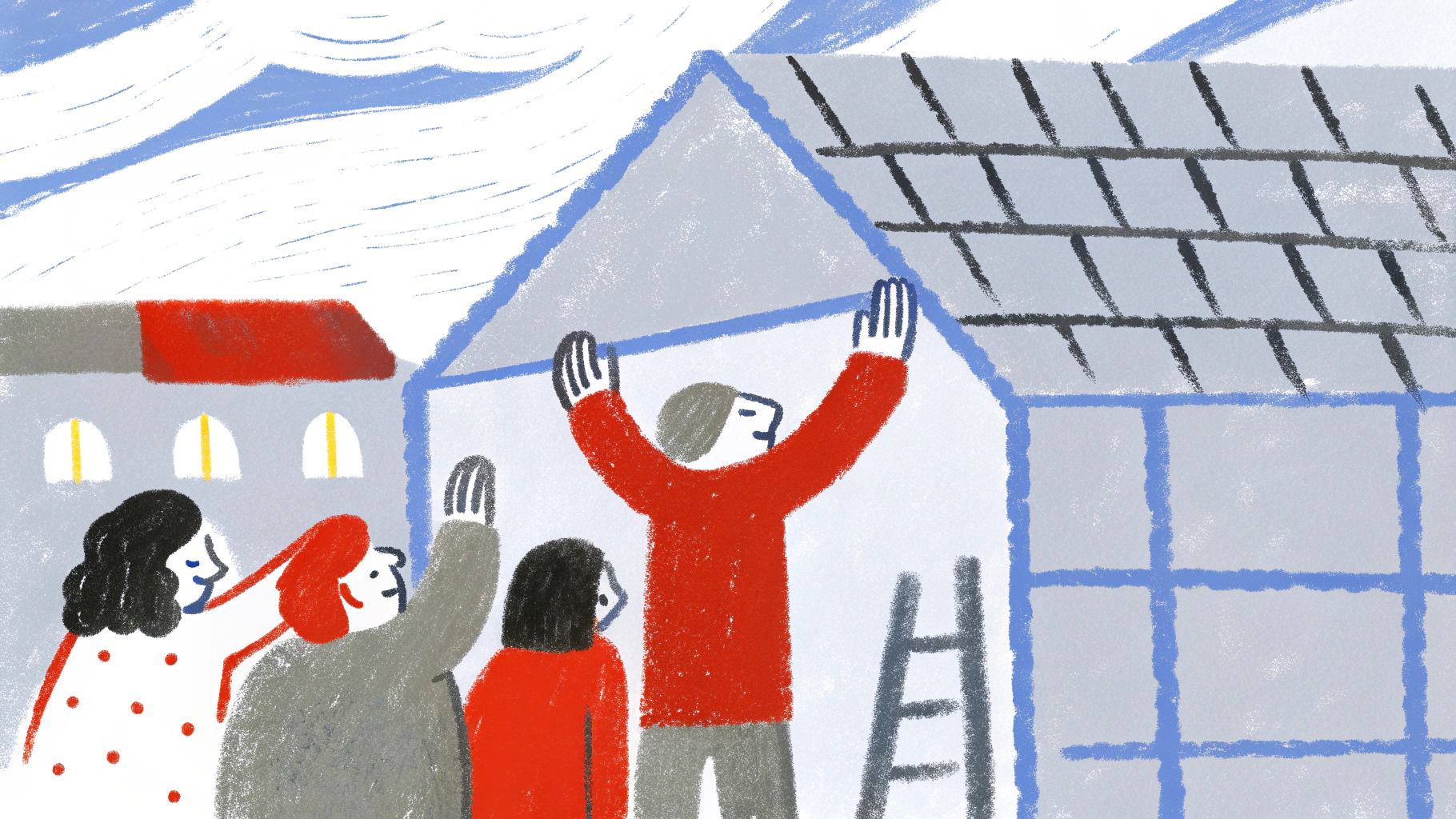
★ set realistic expectations (healing isn't linear)
healing deep relationship wounds is not a linear or quick process.
there will be:
good days where you feel hope and connection
bad days where the pain or doubt resurfaces
progress followed by setbacks
moments where you question if it's worth it
this up-and-down is normal in the journey. try not to panic if you hit a rough patch after some progress. it doesn't mean you're back to square one.
communicate with each other during the hard moments:"i'm having a tough day remembering ___, but i want us to get through this."
celebrate the small improvements and understand that true repair might be a long-term project. we're talking months or years, not weeks.
★ know when to get professional help
if your efforts to rekindle are consistently hitting a wall due to unresolved issues, consider couples therapy as a next step.
there's absolutely no shame in involving a trained counselor. a skilled therapist provides:
a neutral space for both of you to be heard
techniques to communicate and rebuild trust more effectively
outside perspective you can't get on your own
structured framework for healing
signs you should definitely seek help:
▸ you're having the same fights over and over with no resolution▸ one or both of you is harboring intense resentment▸ communication has completely broken down▸ you're unsure if you can ever trust each other again▸ there's been infidelity or major betrayal▸ one or both of you is considering leaving
don't wait until it's beyond repair. getting help early can give you tools to heal that you might not figure out on your own.
even the strongest couples sometimes need an outside perspective. therapy isn't a sign of failure. it's an investment in learning how to succeed together.

★ the difficult truth about one-sided effort
if only one person is trying to rekindle and the other has one foot out the door, it will be very hard to make progress.
both partners need to be genuinely willing to work on things. you can't force someone to rekindle love. it has to be a mutual choice.
if you find yourself in a situation where your partner isn't willing to try, you may need to have a frank discussion about the future.
in some cases, individual or couples therapy can help a reluctant partner open up to the process, but ultimately they must choose to participate.
if they don't, you'll have to reflect on whether it's sustainable for you to stay in a one-sided relationship where you're doing all the work.
sometimes the most loving thing you can do is let go.
how to keep your relationship strong long-term (so you don't end up here again)
imagine you've started to see progress. you feel closer, the spark is returning bit by bit. fantastic.
now, how do you ensure that six months or a year from now you're not back in the same rut?
the answer is to turn your rekindled connection into sustainable habits. long-term love isn't a "set it and forget it" thing. it's like a garden that needs ongoing care.
★ make connection a daily priority (not just when things are bad)
don't fall into the trap of only working on the relationship when it's in trouble.
couples who keep their love strong put in regular, small efforts even when things are good.
this can be as simple as:
continuing those daily hugs and check-ins
saying "i love you" often
keeping up a weekly date night
asking meaningful questions
showing physical affection
expressing appreciation
think of it as maintenance that prevents the spark from dying out.
small, consistent gestures often add up to more than grand, infrequent ones. in practice, sending a sweet text during the day or taking 10 minutes to chat over coffee every morning might do more for your bond than an annual anniversary trip.
feed those small doses of love and attention into the relationship every single day.

★ stay adaptive and curious (because life changes)
life will keep changing (jobs, health, family circumstances, personal growth) and your relationship will evolve along with it. embrace change together rather than resisting it.
check in as life shifts:
"what do you need from me in this new situation?"
"how can we adapt our routines to stay connected?"
"what's different for you right now?"
be willing to adjust routines or habits to stay connected under new circumstances.
after having a baby, you might switch date night to a home brunch date during naps.
during a busy work season, you might shift from hour-long evening walks to 15-minute morning coffee chats.
maintain that sense of curiosity about each other. you're both going to grow and maybe develop new interests or viewpoints. keep asking questions and engaging with each other's inner worlds.
it keeps things interesting and prevents the dreaded autopilot.

★ nurture your individual lives too (counterintuitively)
one way to keep your relationship vibrant is for each of you to keep growing as individuals.
when you both have:
your own hobbies
your own friends
personal goals
individual interests
you bring fresh energy back to the relationship. you have new stories to tell and you're less likely to feel "stuck" or dependent on your partner for all your fulfillment.
support each other's personal development and celebrate it.
a healthy togetherness is made of two healthy, interesting individuals. when you both feel good about yourselves, it positively impacts the relationship.

★ celebrate the good (even the small stuff)
don't wait for huge milestones to acknowledge your relationship's strengths. make it a habit to notice and celebrate small wins and happy moments.
did you work as a team to get through a stressful week? high five over it.
did one of you plan a lovely date? express how much it meant.
even just saying, "you know, we've been communicating so much better lately. i love that," reinforces the positive.
celebrations can be as simple as:
a toast at dinner
a shout-out in your conversations
leaving a note for them to find
texting them "i appreciate you"
this practice builds an atmosphere of positivity and appreciation, which acts like a buffer against future rough patches.

★ keep the mindset that your relationship is a cherished priority
life will get busy again. obstacles will appear. yes, you'll occasionally have lulls where things feel mundane.
but if you're both committed to continually rekindling and reconnecting, those phases will be temporary.
think of your love as an ongoing journey rather than a destination. when you approach it that way, you'll continuously find ways to:
grow closer
learn more about each other
deepen your bond
discover new things to love
many couples find that after working through a rough period and rekindling their relationship, they end up feeling stronger and more in love than ever before.
it's like surviving a winter and welcoming a spring that's even more beautiful.

why rekindling your relationship is worth the effort
reigniting the spark in a relationship is absolutely possible. it's not always easy, and it doesn't happen overnight, but the flame can burn brightly again with care and consistency.
remember that it's less about one dramatic "movie moment" and more about daily acts of love and effort.
a thoughtful text. a heartfelt conversation. a fun new activity. an unexpected hug from behind.
all these little things, added up day after day, create the conditions for passion and closeness to thrive.
be patient with each other and with the process. there may be setbacks or days when it feels like you're not making progress. that's normal.
what matters is that you keep choosing to invest in each other.
couples who succeed in rekindling are usually the ones who maintain consistent effort despite the ups and downs.
think of it like tending a garden: you water it regularly, pull weeds, and give it light. eventually you're rewarded with beautiful blooms.
similarly, by continuously applying the strategies we discussed (quality time, better communication, novelty, affection, empathy), you create an environment where love can flourish anew.
don't hesitate to use resources to help you. you might:
set reminders to schedule date nights
use candle to send you daily connection prompts so you never go a day without sharing something meaningful
join a couples workshop
read books on relationships together
see a therapist if needed
look, no app is going to fix fundamental relationship issues. but if your problem is the slow drift that happens when life gets busy? when you're both good people who care about each other but somehow only talk about meal planning?
that's where daily connection rituals with candle genuinely help. it's structure for something that should happen naturally but doesn't when you're exhausted and busy.
in the end, rekindling a relationship comes down to remembering why you're together in the first place and actively choosing each other again and again.
by showing up with:
intention
positivity
openness to change
consistency
genuine care
you and your partner can truly rediscover the joy of being in love.
not just as a nostalgic memory, but as a living, evolving experience in the here and now.
many couples say that doing this work brought them to a deeper, more resilient love than even in the early "spark" phase. that deeper love (where you feel both the excitement and the security with each other) is worth every bit of effort.
you've got this.

now go light that fire.